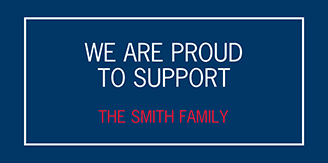Setting Writing Goals
I am sure we can all relate to those days when we set out with the best intentions; a full day of uninterrupted writing time. The coffee has been made and accompanies you at your desk. The cat and dog are sleeping beside your feet. Your mobile phone is on flight mode, and you have even gone to the trouble of preparing a bowl of healthy nuts and some fruit to keep your energy levels up as the morning, and your manuscript, progresses.
Before you know it, you have been sitting behind your laptop for a good three or four hours. You have made excellent progress on the snacks, and have enjoyed a third cup of coffee. You are also up to date with the local, and national news, having checked out your favourite news site, as per your morning routine. You have also made your way through all new emails, and carefully unsubscribed from all the unnecessary newsletters and announcements blinking at you from your inbox. You have also been very productive with online banking, paying a few accounts, and only spent about 30 minutes on facebook writing cheerful comments under the photos from your cousin's birthday BBQ. After that, you conveniently remembered you had been planning to investigate flights for your next holiday, and it's only while perusing eBay for outdoor furniture that you realise your manuscript is still sadly sitting there, with only a few sentences completed. And they aren't even that good!
Even published authors and experienced writers experience writer's block and periods of procrastination. Some, like the example above, last a few hours. Others can creep on for days and even weeks. Why is it that so many authors and writers are affected by this annoying issue, and yet, in other professions, it doesn't really seem to be an issue?
It is easy to understand why procrastination is such a common problem, and that is simply because most authors and writers are self-employed, or freelancers, and therefore don't really have a boss to be accountable to. Obviously established and popular authors are paid an upfront advance by their publisher to add a sequel or stand-alone book to their stable of impressive titles. But even then, it's a completely different feeling than having someone standing over you, cracking the whip, so to speak, and demanding results.
Most authors and freelancers choose an independent lifestyle because we particularly want to avoid a controlling boss or company. But how do they reach a middle ground where they can produce quality content to deadlines, without needing to recruit a boss for themselves?
The simple answer is goal setting - A clear statement of goals that are achievable and realistic, together with a deadline beside each of them, and then displayed somewhere visible from your computer or workstation.
It's important to keep your goals simple because then you have clarity and a better chance of meeting them. But on the other hand, having just two goals (start manuscript and finish manuscript) will not be very helpful as you progress. You may find it helpful to use chapters as milestones, or even divide the writing into 3 parts, and then include editing and proof-reading your own manuscript as goals that follow. Different authors and different types of books will warrant different categories of goals. As long as you feel that the individual goals are practical and achievable, without giving yourself too much time for procrastination and getting side-tracked with various other projects, this process should help you feel gratified by your own progress and more motivated to hit more goals and finish the job.
Another good idea is to ask a trusted friend or mentor to keep you accountable. (It can be another author working on his/her own manuscript.) Share your goals with them, and then you can check in with this person at regular intervals and discuss your progress. If you aren't achieving any of them at all, you might need to alter them slightly (or the deadlines) because they could be unrealistic. On the other hand, you may be smashing them easily, and it could be a good idea to challenge yourself by setting more difficult goals with tighter deadlines. Whatever the case, having someone to share the process with can help you to feel supported during the whole project!
Kerry McDuling for Publicious
Global Book and Ebook Distribution
Print On Demand and Ebook distribution
Affordable book publishing
Affordable book publishing service
Print On Demand Australia
Book typesetting service
Professional quality Ebook
Book cover designs
Manuscript assessments/copy editing/proofreading
Book marketing/publicity
| Tags:Andy McDermott / Director |
Post comment


